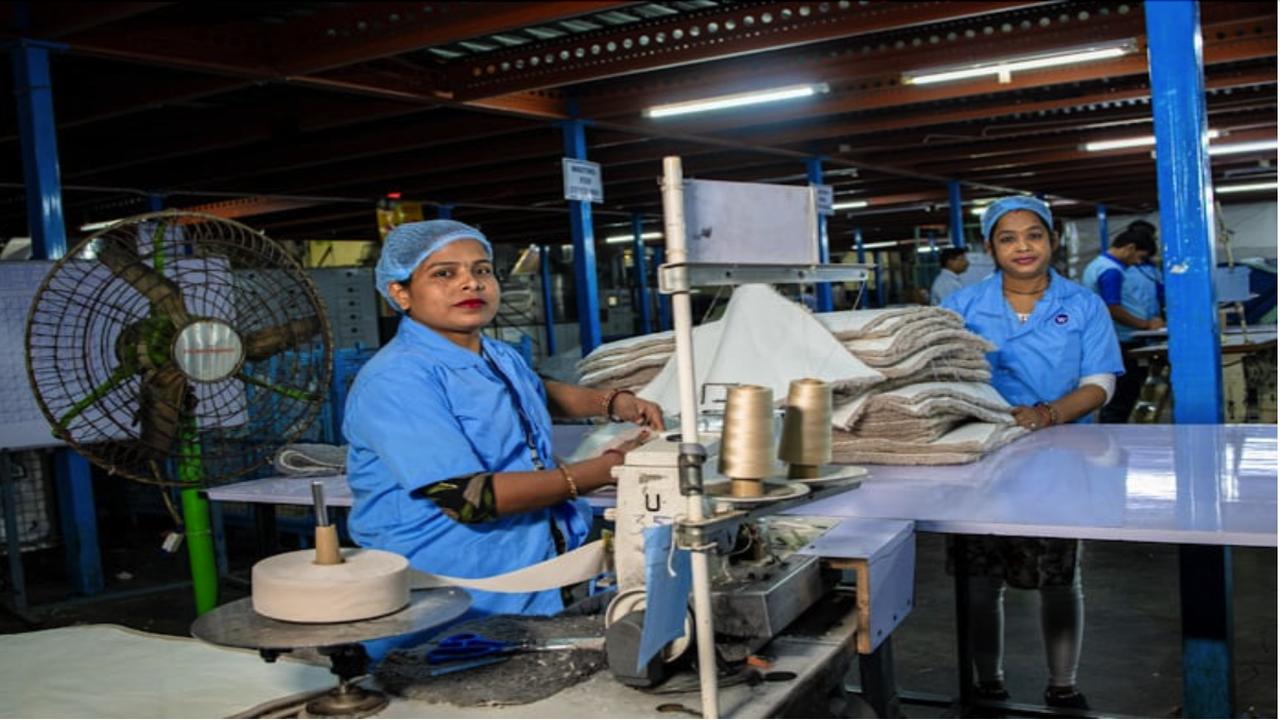 Amidst the global push for sustainable practices, Taiwan emerges as a beacon of innovation in the textile industry. With a focus on eco-friendly performance fabrics, Taiwanese manufacturers are revolutionizing the sector by upcycling coffee grounds, cacao husks, and plastic waste into cutting-edge textiles. This shift towards sustainability not only meets consumer demands for ethically made apparel but also showcases how advanced materials can harmoniously blend performance and responsibility. Let's delve into how Taiwan's textile industry is reshaping the future of performance apparel through groundbreaking initiatives and technologies.
Amidst the global push for sustainable practices, Taiwan emerges as a beacon of innovation in the textile industry. With a focus on eco-friendly performance fabrics, Taiwanese manufacturers are revolutionizing the sector by upcycling coffee grounds, cacao husks, and plastic waste into cutting-edge textiles. This shift towards sustainability not only meets consumer demands for ethically made apparel but also showcases how advanced materials can harmoniously blend performance and responsibility. Let's delve into how Taiwan's textile industry is reshaping the future of performance apparel through groundbreaking initiatives and technologies.
Transforming Waste into Innovation
Taiwanese textile manufacturers are at the forefront of transforming waste materials into innovative textiles that not only meet performance standards but also align with sustainability goals. Companies like Singtex Group and Grandetex Development Co. Ltd. are pioneering the use of unconventional materials such as coffee grounds and cacao husks to create high-performance fabrics. Singtex's S.Café® technology, which repurposes coffee grounds into yarn, offers enhanced moisture management and UV protection, showcasing how waste can be turned into valuable resources. Similarly, Grandetex's Secao® technology utilizes discarded cacao husks to produce fibers rich in polyphenols, providing fabrics with natural anti-odor and moisture-wicking properties. These initiatives not only reduce waste but also contribute to the circular economy by creating sustainable products with improved performance characteristics.
Sustainable Practices in Textile Production
The textile industry is increasingly focusing on sustainable practices to meet the growing demand for environmentally friendly products. Companies like Li Peng Enterprise are leading the way by recycling plastic waste, particularly PET bottles, into high-quality polyester fibers through their RePET® innovation. By reducing reliance on petroleum-based materials and adopting eco-friendly recycling processes, Li Peng is not only addressing environmental concerns but also enhancing the quality and durability of their products. Additionally, the shift towards solution-dyeing processes, as implemented by Li Peng, reduces water and energy consumption while maintaining superior colorfastness in textiles. Such practices not only benefit the environment but also improve the overall sustainability profile of the textile industry.
Embracing Ethical and Transparent Supply Chains
As consumer awareness around ethical sourcing and transparency in supply chains grows, companies like Wu Luen and Da Fon are prioritizing certifications like Bluesign® to demonstrate their commitment to sustainable and responsible practices. Wu Luen's integration of GRS-certified recycled materials, bio-based nylons, and biodegradable fibers into their fabric collections showcases a dedication to environmental standards. By offering a range of functional finishes for moisture management and odor control, Wu Luen provides brands with sustainable solutions that meet stringent environmental criteria. Similarly, Da Fon's emphasis on certified, eco-innovative fabrics, such as the ITS iCOOL® Collection, highlights the importance of aligning with leading environmental and social standards to drive sustainable textile solutions. These initiatives not only enhance the credibility of the companies but also set a benchmark for ethical sourcing practices in the textile industry.
Innovation for Performance and Sustainability
Innovation is key to driving the convergence of performance and sustainability in the textile sector. Companies like Hitex Textile Co. are leveraging their expertise in developing high-performance fabrics with recycled content to cater to specific industry needs, such as flame-retardant and cut-resistant textiles for the construction and security sectors. By obtaining certifications like GRS, Hitex is not only ensuring the quality and sustainability of their products but also meeting the evolving demands of environmentally conscious consumers. Moreover, Hitex's focus on incorporating recycled materials into their fabric offerings underscores a commitment to reducing environmental impact while delivering cutting-edge performance textiles. This dual emphasis on innovation and sustainability positions these companies as leaders in reshaping the future of performance apparel.
Conclusion
Taiwan's textile industry stands as a testament to innovation and sustainability, with companies like Singtex Group and Li Peng Enterprise leading the charge in transforming waste into high-performance fabrics. Embracing ethical practices and transparent supply chains, companies like Wu Luen and Da Fon showcase a commitment to environmental standards. As the sector continues to innovate for performance and sustainability, the future of apparel is being reshaped by Taiwan's groundbreaking initiatives and technologies, setting a new standard for responsible textile production worldwide.